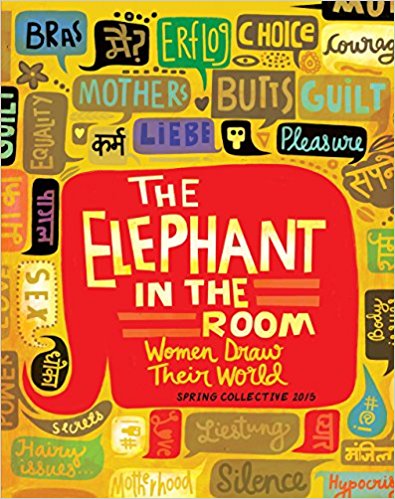The second wave of feminism threw open a basic proposition—the personal is political. Structures of power have historically determined individual agency, so much so that ‘choice’ may not be as autonomous as we would like to believe. The Elephant in the Room is a phenomenological attempt at conceptualizing the ways in which gender is experienced by women. The diversity of the narratives of the book captures the nuances, and provides various pieces of a jigsaw puzzle that aims to answer that critical question: what does it mean to be a woman?
Sixteen comic artists from India and Germany lived together in a residency near Bangalore to create this book, which is a compilation of twenty-seven visual stories that decons-truct and re-assemble ‘ideas of identity, power, and love; sex, family, and bodies.’ The book opens with Katrin Stangl’s ‘Some Questions’, that explore the ideas of the individual vs society, marriage, gloom, personal choices and the onus of their repercussions, leadership, decision making, among other themes. Stangl has worked with minimum text, just one line questions, buttressing twelve demiurgic illustrations. Her paintings are uncluttered, with simple figures, asking a commonplace question. As a reader, while I attempt to answer her questions, I also find my interpretation of her paintings being instigated by that answer.
Archana Sreenivasan’s ‘Otherly Urges’, Ulli Lust’s ‘Weekend Mum’, ‘Whats Wrong With Me’, and Marialuisa’s ‘Motherhood’ deliberate over the issue of motherhood(s) as choice, rather than a social compulsion. Through their illustrations, they display the capacitating as well as stifling aspects of motherhood, and the diversity of motherhood. They highlight that motherhood is ‘affectual’ labour, and therefore involves emotions that cannot be put under the essentializing scrutiny of the gender lens. The nuances inherent in women’s experience of everyday life, wherein emotions play an important role, have to be explored in order to understand the context around a woman’s choice to accept or reject motherhood.

